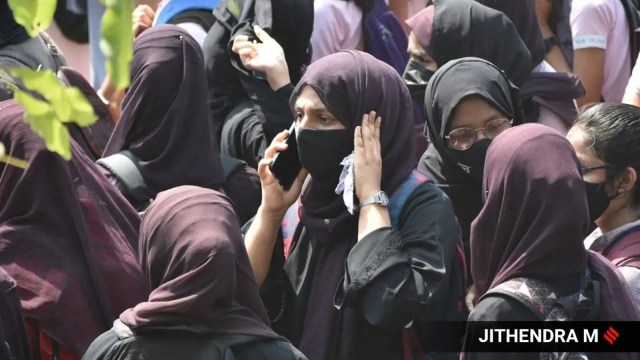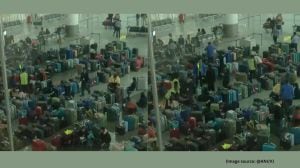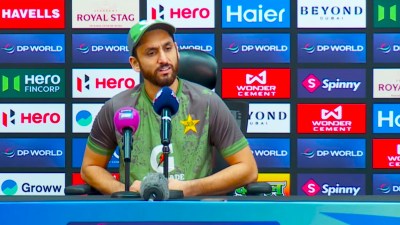“The Act does not say no petition under Section 125 shall be filed by Muslim women. They should have said that. In the absence of such a thing, can we add the restriction to the Act? That is the point,” Justice B V Nagarathna, presiding over a two-judge bench, said.

The question had arisen while the court was dealing with an appeal by a man, Mohd Abdul Samad, who had been ordered to pay Rs 20,000 monthly maintenance to his ex-wife by a family court in Telangana.
The woman had moved the family court under Section 125 of the CrPC, stating that Samad had given her triple talaq. He appealed to the High Court, which while disposing of the plea on December 13, 2023, said “several questions are raised that need to be adjudicated” but “directed the petitioner to pay Rs 10,000 as interim maintenance”.
Challenging this, Samad told the SC that the HC had failed to appreciate that the provisions of the 1986 Act, which is a Special Act will prevail over the Provisions of section 125 Cr.P.C which is the general Act. He contended that “the provisions of Section 3 and 4 of the” 1986 Act “which starts with non-obstante clause, will prevail over the provisions of section 125 Cr.P.C, which has no non-obstante clause and as such the application for grant of maintenance…under section 125 Cr.P.C, would not be maintainable before Family Court when the Special Act gives jurisdiction to First class Magistrate to decide the issue of Maher and payment of other subsistence allowance under Section 3 and 4 of the” 1986 Act.
Taking it up on February 12, the SC had appointed senior advocate Gaurav Agarwal as the amicus curiae for the matter and sought his views.
On Monday, Agarwal told the bench, also comprising Justice Augustine George Masih, that “according to me, Section 125 proceedings are perfectly maintainable post Shah Bano also”.
Story continues below this ad
He told the bench that the question whether the 1986 Act takes away the right under Section 125 CrPC was not dealt with by SC Constitution bench in the 1986 ruling in Danial Latifi v. Union of India.
“However, the observations in paragraph 33 of the judgment suggest that the 1986 Act has to be interpreted in such a manner that the divorced Muslim woman is entitled to all rights of maintenance as are available to other divorced women in the country. Consequently, the rights of divorced women cannot be taken away only from one section of divorced women of our country, lest it would infringe Articles 14, 15 and 21 of the Constitution. Thus, the validity of the 1986 Act was upheld with this understanding that 1986 Act does not seek to treat Muslim divorced women any less favourably than other divorced women,” he said.
Appearing for the ex-husband, Senior Advocate S Wasim A Qadri contended that if the intention of Parliament was to allow Muslim women to file under Section 125 of CrPC, there was no need for the 1986 Act.
“Parliament is conscious of the provisions of Section 125. Parliament cannot create confusion. This is the presumption — that Parliament knows that alternate law is there even when this law has been framed,” he submitted.
Story continues below this ad
Justice Masih, however, said: “That’s why we said the law could have simply said that divorced Muslim women should not move under Section 125.”
Qadri said Section 7 of the 1986 Act clearly says that if a petition is filed under Section 3 of the Act, the Magistrate will deal with that.
Justice Nagarathna pointed out that it is with respect to pending cases.
Qadri wondered if even pending cases were not allowed to go ahead, how can it be said that new cases could be filed.
“That we can’t say,” responded Justice Nagarathna.
Story continues below this ad
Agarwal referred to a Kerala High Court decision which said that both Section 125 (CrPC) petition and Section 3 (1986 Act) petition are maintainable and that the woman could choose one of them. He submitted that the opinion may not be correct and that the SC may have to clarify this.
Justice Nagarathna said: “The question is whether she has the right to choose in which case it is doctrine of election or if she can go under both.” She asked: “Why can’t it be both?”
Commenting on the Kerala HC view, she said: “No, it can’t be an option.”









